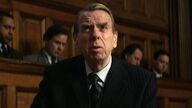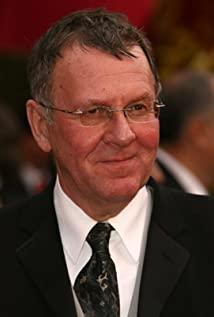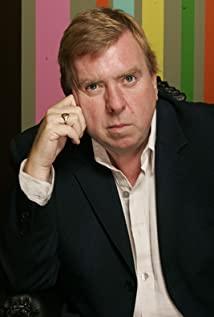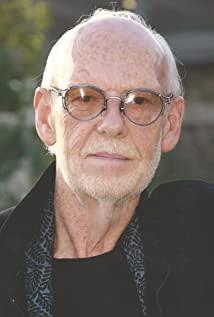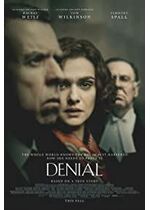-
Deborah Lipstadt: Now, some people are saying that the result of this trial will threaten free speech. I don't accept that. I'm not attacking free speech. On the contrary, I've been defending it against someone who wanted to abuse it. Freedom of speech means you can say whatever you want. What you can't do is lie and expect not to be held accountable for it. Not all opinions are equal. And some things happened, just like we say they do. Slavery happened, the Black Death happened. The Earth is round, the ice caps are melting, and Elvis is not alive.
-
Richard Rampton: They're a strange thing consciences. Trouble is, what feels best isn't necessarily what works best.
-
David Irving: [first lines; in a video speaking to a sympathetic audience] I don't see any reason to be tasteful about Auschwitz. I say to you quite tastelessly that more women died on the back seat of Senator Edward Kennedy's car at Chappaquiddick than ever died in a gas chamber at Auschwitz.
[audience laughing and applauding]
Deborah Lipstadt: Holocaust denial rests on four basic assertions. Number 1: That there was never any systematic or organized attempt by the Nazis to kill all of Europe's Jews. Number 2: That the numbers are far fewer than five or six million. Number 3: That there were no gas chambers or specially built extermination facilities. Number 4: That the Holocaust is therefore a myth invented by Jews to get themselves financial compensation and to further the fortunes of the State of Israel. War, the deniers say, is a bloody business. There's nothing special about the Jews, they're not unique in their suffering. They're just everyday casualties of war. What's the fuss?
Deborah Lipstadt: Okay, and here's another question, how do we know the Holocaust happened? Seriously. I'm asking. How do we prove it? Photographic evidence? Not one person in this room or outside it has ever seen a photograph of a Jew inside a gas chamber. You know why? Because the Germans made sure that none were ever taken. So how do we know? How do we *know* that so many were murdered? So what's the proof? Where's the proof? How strong is it?
-
Deborah Lipstadt: What did you think, Anthony?
Anthony Julius: What did I think? I thought it was the most boring morning we've had in court so far.
Deborah Lipstadt: My God, you love to be contrary.
Anthony Julius: Well, the man's an anti-Semite and a racist. It's like having shit on your shoe. You wipe it off. You don't study it.
-
Richard Rampton: The coward threatens only where he is safe.
[Quoting Goethe: "Der Feige droht nur, wo er sicher ist"]
-
Richard Rampton: My lord, during this trial, we have heard from Professor Evans and others of at least 25 major falsifications of history. Well, says Mr. Irving, "all historians make mistakes." But there is a difference between negligence, which is random in its effect, and a deliberateness, which is far more one-sided. All Mr. Irving's little fictions, all his tweaks of the evidence all tend in the same direction: the exculpation of Adolf Hitler. He is, to use an analogy, like the waiter who always gives the wrong change. If he is honest, we may expect sometimes his mistakes to favor the customers, sometimes himself. But Mr. Irving is the dishonest waiter. All his mistakes work in his favor. How far, if at all, Mr. Irving's Antisemitism is the cause of his Hitler apology, or vice versa, is unimportant. Whether they are taken together or individually, it is clear that they have led him to prostitute his reputation as a serious historian in favor of a bogus rehabilitation of Adolf Hitler and the dissemination of virulent Antisemitic propaganda.
-
Sir Charles Gray: Yes, this is a question I have to ask you, Mr. Rampton.
Richard Rampton: Yes, by all means, my lord.
Sir Charles Gray: My question is this: If somebody is antisemitic, antisemitic and extremist, he is perfectly capable of being honestly antisemitic, yes? He's holding those views and expressing those views because they are indeed his views.
Richard Rampton: Well, yes.
Sir Charles Gray: And so it seems to me, if it comes down to it, that the antisemitism is a completely separate allegation and has precious little bearing on your broader charge that he has manipulated the data?
Richard Rampton: No, no, my lord. The whole endeavor of the defense has been to prove that the two are connected.
Sir Charles Gray: But he might believe what he is saying. That is the point. That is why it is so important.
Richard Rampton: My lord, if we know that Mr. Irving is an anti-Semite, and if we know there is no historical justification for Holocaust denial, then surely it is no great stretch to see that the two are connected.
Sir Charles Gray: Yes. Thank you. Carry on.
Deborah Lipstadt: What the fuck just happened? Anthony, what just happened?
Denial Quotes
-
Willis 2022-04-04 09:01:08
Some movies really can't be judged as movies
-
Lamont 2022-04-03 09:01:12
1. Arguments, the male protagonist is an anti-Semitic extremist, the actor's choice is very good, and his face is so bad. 2. This kind of denial of historical facts, I think, only exists in our "powerful country". After Trump was elected, we must revise our views. Human nature is similar, of course, across borders.


